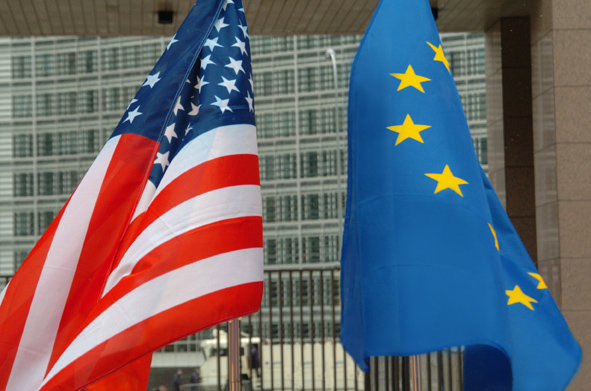
Europe keeps to play on the U.S. ground

This package bears almost no results for the Iranian economy, and can in no
way guarantee the critical issues such as oil exports and banking transactions.
Although coming up with a practical package (at least at the level of Europe’s
economic capabilities) shouldn’t take much time, European leaders insist on
continuing the negotiations with Iran until November! Regarding the
European officials' approach to the nuclear deal, there are some points that
can’t be easily ignored:
In 2017, the European troika announced its agreement to making changes in
the content of the Joint Comprehensive Plan of Action (JCPOA) and the inclusion
of issues such as Iran's missile and regional capabilities, inspections of
our country's military sites and putting permanent restrictions on our nuclear
program. The completion of this puzzle presented by the Trump
government was not something that would be hidden from the Iranian
people. The intensive talks between the experts of the Foreign and Commonwealth
Office of the European Union and the United States over "changing the JCPOA"
was a sign of the Europeans’ betraying the JCPOA and the Iranian nation.
Even Angela Merkel and Emanuel Macron, in their last visit to Washington (before
Trump's withdrawal from the JCPOA), urged the US president to avoid pulling out
of the nuclear deal in exchange for the fulfilment of all his demands. However,
Trump was concerned about other issues such as attracting the support of
Zionist lobbyists, and thus he was determined in walking out of the
nuclear deal. Therefore, the US withdrawal doesn’t suggest the break of
"Washington-Brussels" alliance, but rather adds to the European troika
accusation: a charge which is definitely no less than the charge of Trump's
government in pulling out of the nuclear deal.
It might be imagined that due to the United States withdrawal from the nuclear
deal, the joint U.S.-EU project on the JCPOA and its change has come to an end.
Though many western sources talk of tensions raised in transatlantic relations,
it seems that behind the Western media’s hustle and bustle, something else is
going on. The fact is that despite the official withdrawal of the Trump’s
government, the Americans and Europeans’ negotiations over how to deal with the
nuclear accord are still ongoing. Part of these negotiations are officially
conducted during the American officials’ visits to European countries and vice
versa. But the most important part of these are conducted in the form of "secret
diplomacy" and between the US Secretary of State Mike Pompeo and the ministers
of the three European countries. Europe’s recent package of proposals well
indicates that the U.S.-EU cooperation on changing the content of nuclear deal
has not been halted, but rather entered a new phase after Washington's
withdrawal from the JCPOA. "Postponing talks with Iranian officials" by European
authorities is entirely in the US interest. On the other hand, the European
authorities' refusal of offering their package of proposals until November is
totally in line with their strategy of intensifying the "impact of US secondary
sanctions" on Iran.
The United States and the European Union are still trying to assemble the pieces
of this puzzle together, and draw a single image in opposition to the Islamic
Republic of Iran. Trump’s withdrawal from the JCPOA shouldn’t be regarded as
"the end of this joint project" by the United States and Europe, but it simply
means "redefining" it. Distinguishing between the policies of the United
States and Europe, and beyond that, labelling the tensions and disputes among
Washington and the European troika as "strategic confrontation between America
and Europe" is a serious and irreparable mistake in the field
of diplomacy and foreign policy of our country. Now is time for our diplomacy
system to clearly see and recognize the "signs": Signs such as the offer of a
disappointing package by Europe, the Europeans’ effort not to hold negotiations
with Iran until August (the time of the introduction of US secondary sanctions),
etc. all should be considered as a "warning" for Our officials. Even when the
apparent disagreement between US and European officials on the JCPOA, attracts
the attention of the proponents of "the nuclear deal as defined by the European
authorities", the joint attempt of the West against Iran is slowly and
secretly underway.
Source: Tehran Times















